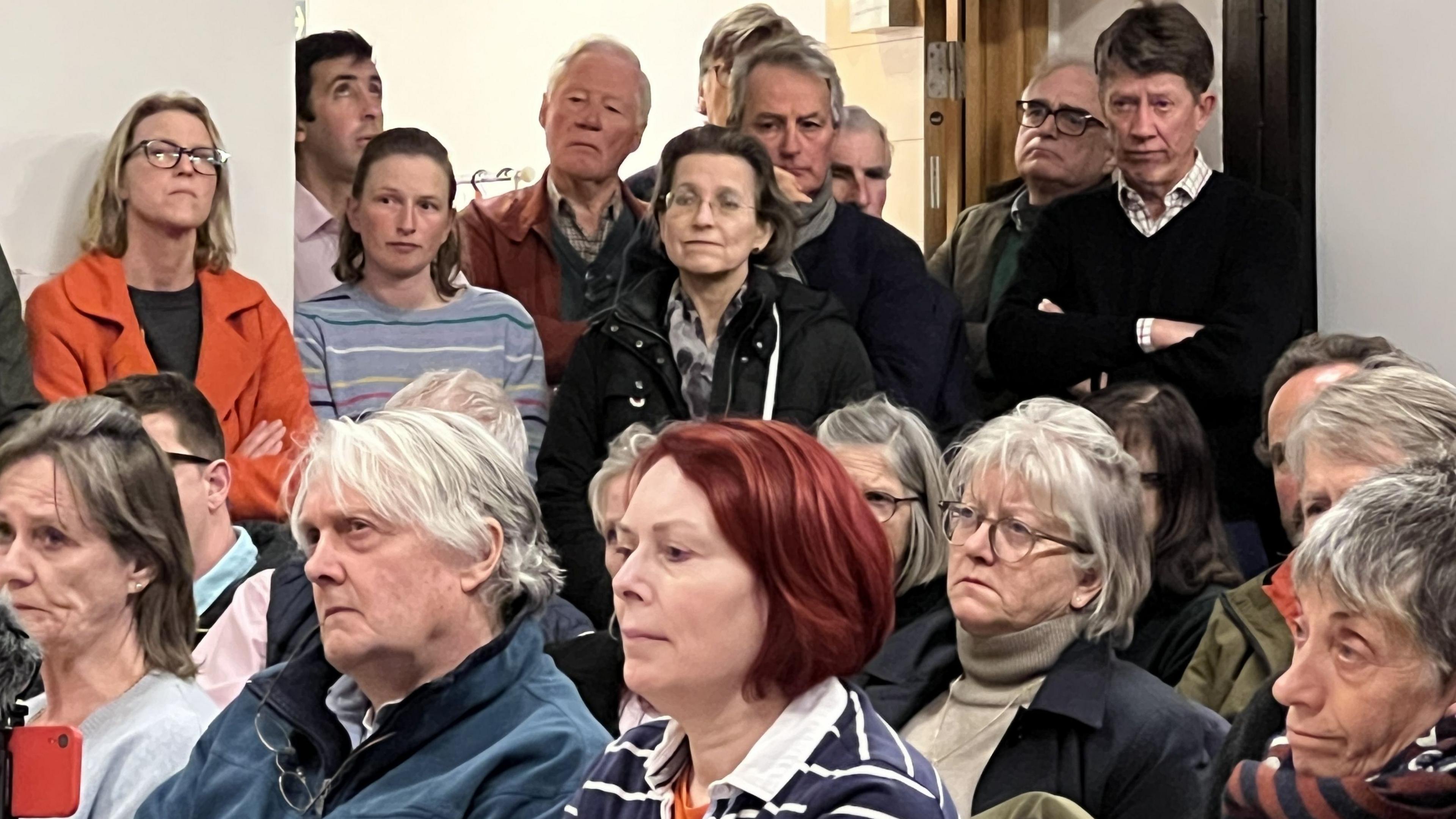Solar farm landowners urged to put 'community above profit'
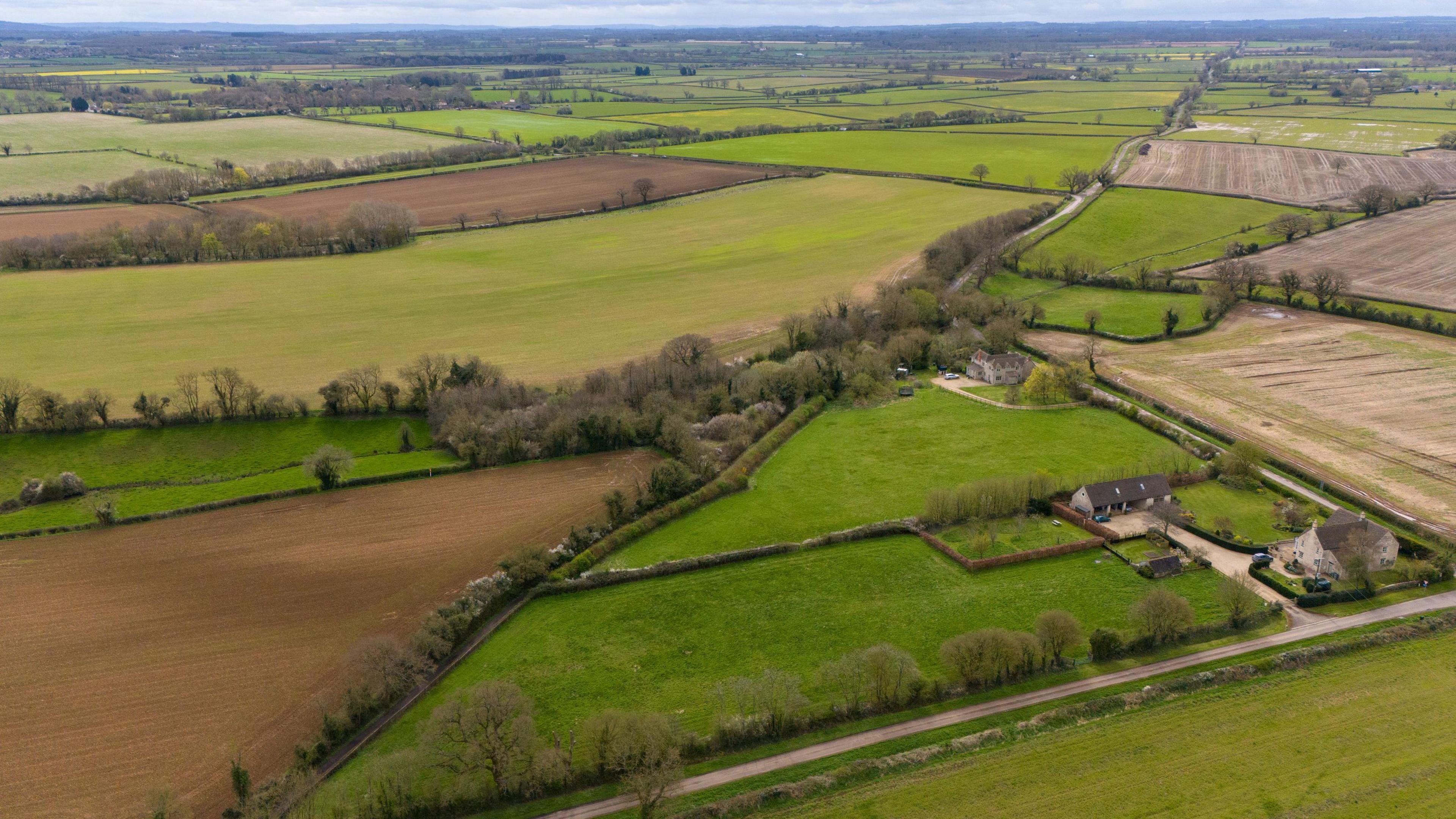
Lime Down Solar Park could deliver up to 500 megawatts of renewable energy
- Published
More than 1,000 people have signed an open letter urging landowners to reconsider participating in a solar farm that would be one of the biggest in the country.
If it goes ahead, Lime Down Solar Park will stretch across 2,000 acres of farmland near Malmesbury, Wiltshire.
It has faced opposition from campaigners, who have now asked landowners to put the "welfare of their communities above personal profit".
Developer Island Green Power has been contacted for comment.
The park could deliver up to 500 megawatts of renewable energy, which is enough to power over 115,000 homes each year.
But campaigners have called the project "divisive and damaging", and are now urging concerned landowners to take a stand.
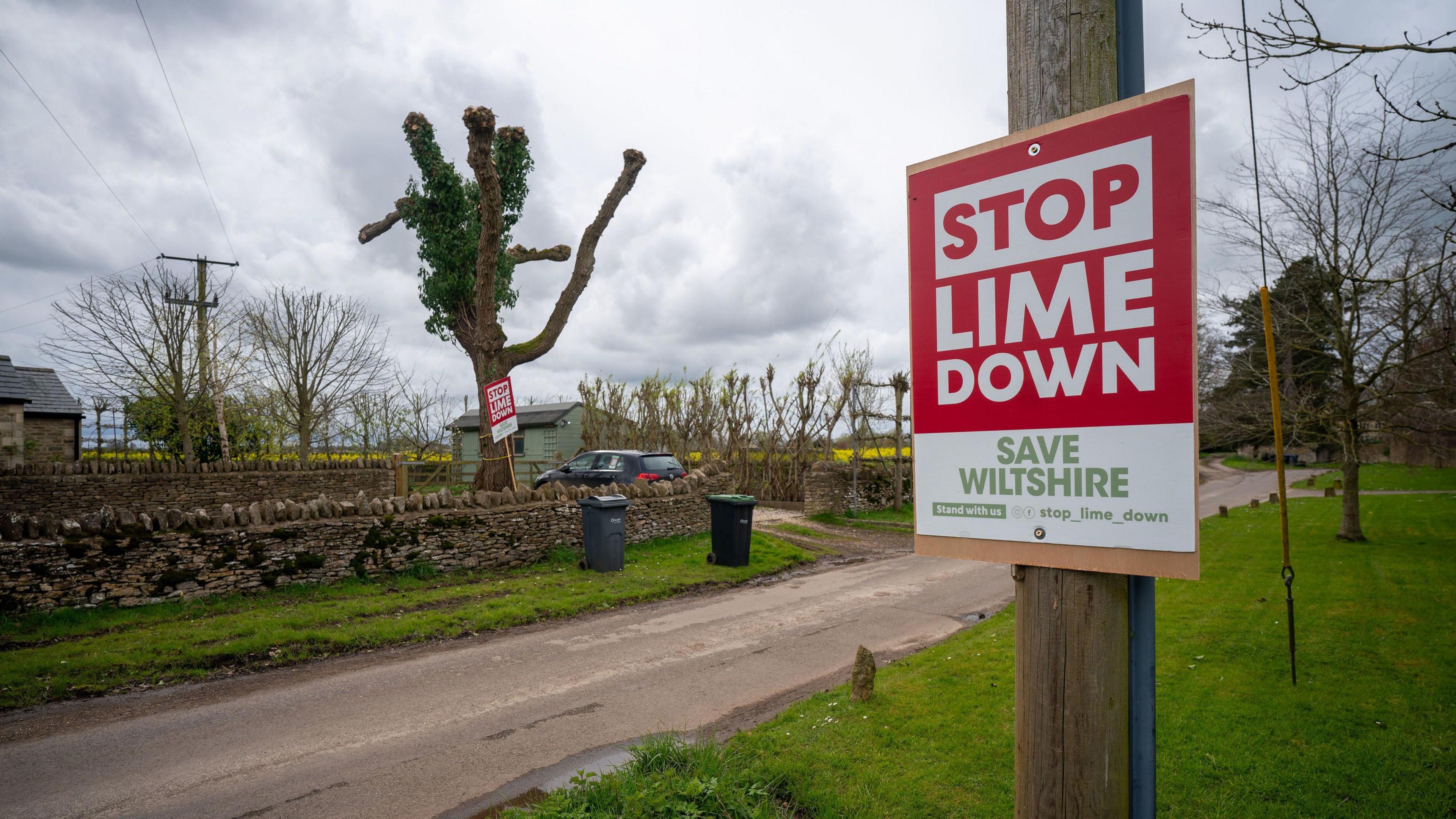
There has been considerable local opposition to the plans
However, developers entered into option agreements with landowners when the project was first proposed, which put in place legally binding obligations to lease the land.
The most common way in which landowners benefit financially from solar parks is through long-term lease agreements.
Developers typically rent the land whilst they install and operate the solar farm, and enter long-term leases when it is installed.
Island Green Power advertises a “zero-risk partnership” to landowners, covering all the development costs, adding that its priority is to ensure that landowners retain their role as "custodians of their property".
'Increase buffer zones'
But campaign group Stop Lime Down said the proposal is "irresponsible and unnecessary".
A spokesperson said: "[It is] lining the pockets of offshore developers with no benefit to the local community.
"This divisive and damaging project can only proceed with the support of the landowners. It’s not too late for them to put their community before self-interest."
The developer recently confirmed that following a public consultation, an additional 44 hectares of land had been made available for the project design.
Will Threlfall, senior project development manager, explained: “This land will be used to increase buffer zones, putting more distance between solar infrastructure and sensitive areas such as the Cotswold National Landscape, heritage assets including the Fosse Way, landscape features, public rights of way, and residential properties.”
Get in touch
Tell us which stories we should cover in Wiltshire
Follow BBC Wiltshire on Facebook, external, X, external and Instagram, external. Send your story ideas to us on email or via WhatsApp on 0800 313 4630.
Related topics
- Published23 July 2024
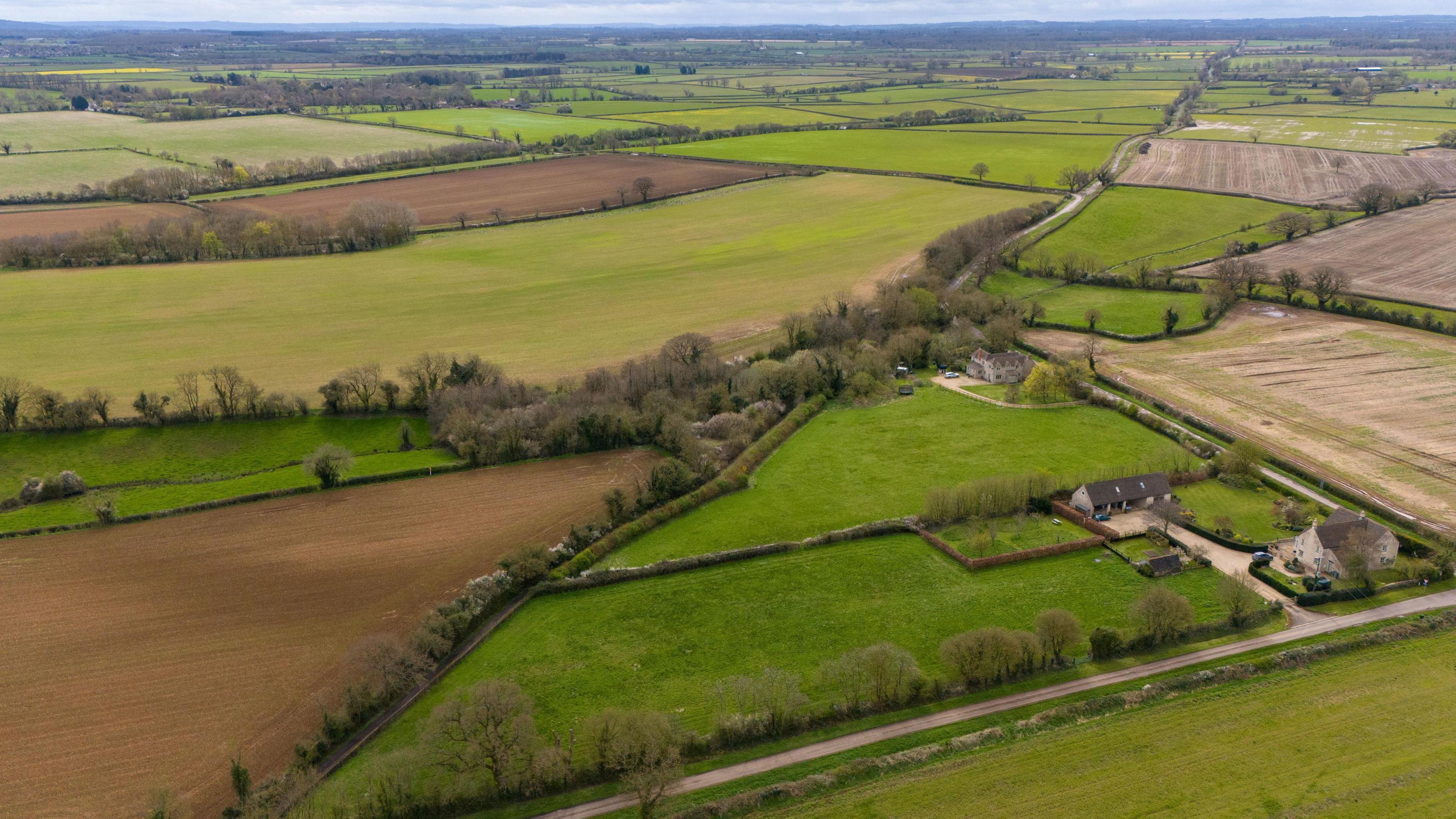
- Published26 April 2024
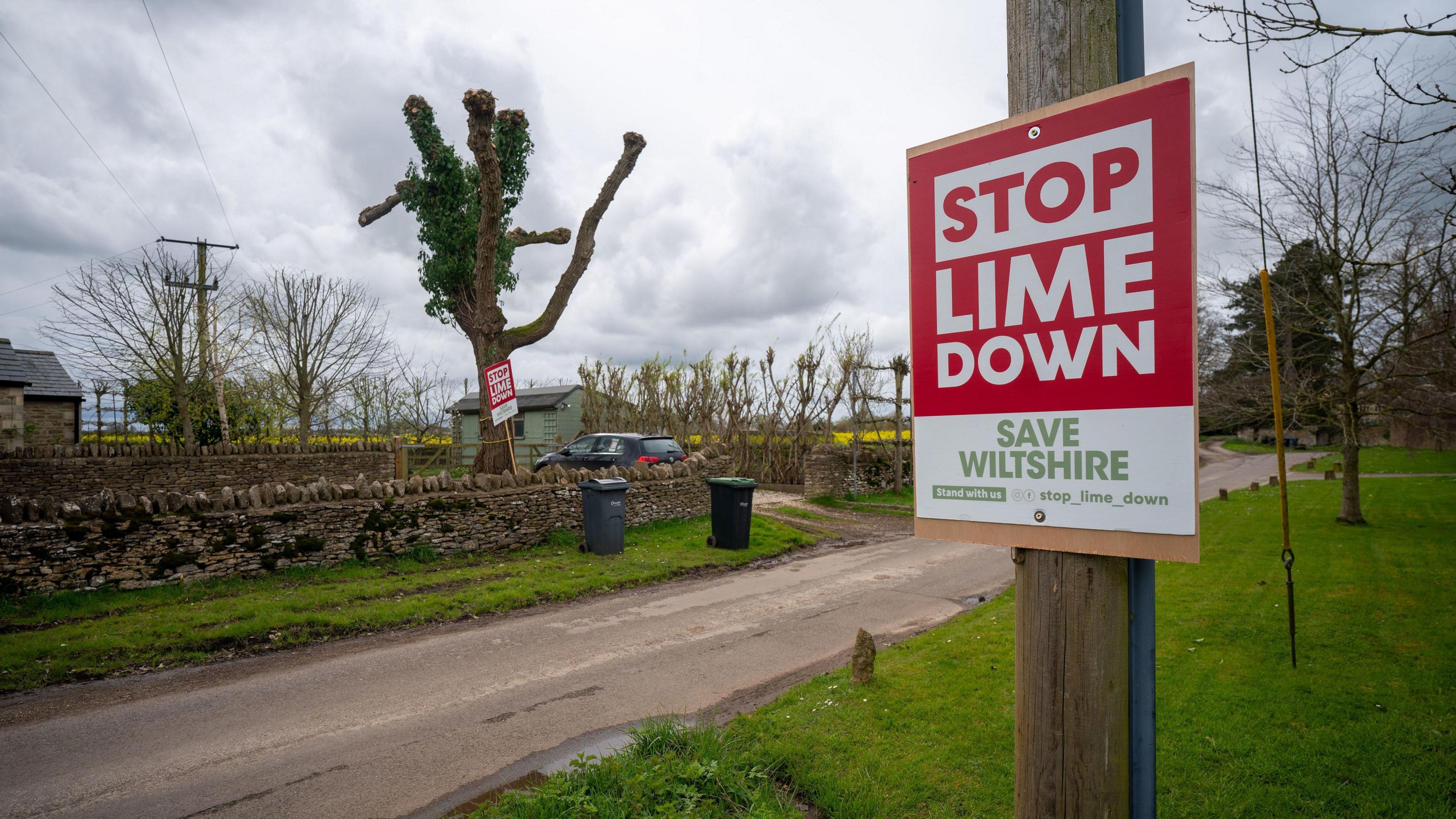
- Published5 April 2024
